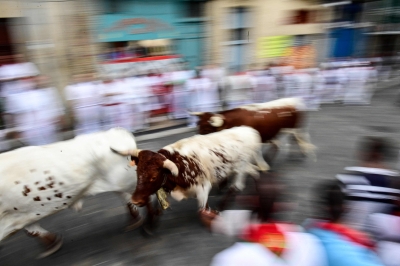MARCH 23 — The recent report regarding discussions to introduce Jallikkattu (a traditional Indian bull-taming sport) into Malaysia should be met with firm opposition (Tamil Nadu To Help Bring Bull Sport to Malaysia, The Star, 21 March 2025).
While this sport holds cultural significance in parts of South India, it is neither a Malaysian tradition nor aligned with the global movement towards recognising animal rights.
At a time when many nations are prioritising the ethical treatment of animals, embracing such a brutal and outdated practice would be a regressive move for Malaysia.
Jallikkattu is often framed as a test of bravery, where participants attempt to grab a bull (usually a zebu bull) by the hump and hold on as long as possible.
However, behind the spectacle lies immense cruelty. Bulls are intentionally agitated, often subjected to acts such as tail twisting, ear pulling, and even the application of irritants to their eyes to induce aggressive behaviour.
They are forced into crowded arenas, where they experience intense fear and distress.
In India, the Supreme Court initially banned Jallikkattu in 2014, citing violations of the Prevention of Cruelty to Animals Act, 1960.
Though the ban was later overturned under political pressure, the case remains a landmark ruling emphasising the ethical obligation to prevent animal suffering.
Malaysia should not ignore the global shift toward animal welfare. Mexico has recently banned traditional bullfighting in favour of violence-free options.
Spain, the historical home of bullfighting, has also seen a decline in the practice, with increasing public opposition.
Participants run ahead of bulls during the bull-run of the San Fermin festival in Pamplona, northern Spain, on July 7, 2023. — AFP pic
While these bullfights are dissimilar to Jallikkattu, the stance taken by countries worldwide is moving toward recognising that animals are not mere objects of human amusement but sentient beings with the right to live free from unnecessary suffering.
Embracing Jallikkattu would place Malaysia on the wrong side of history, associating it with nations that still tolerate animal exploitation in the name of tradition.
One of the most glaring contradictions surrounding Jallikkattu is the reverence of cows and bulls in the Hindu religion.
Cows and bulls are considered sacred in Hinduism, often symbolising patience, strength, and divinity.
Yet, in the name of tradition, the very same animals are subjected to pain, stress, and potential injuries.
If cows and bulls are to be respected, then Jallikkattu stands in direct contradiction to these values. Worship and cruelty cannot coexist, and it is time that cultural narratives align with ethical treatment rather than exploitative practices.
Malaysia has an opportunity to take a stand for ethical governance and animal welfare. There is no justification for adopting a tradition that was never part of Malaysia’s cultural fabric, especially one rooted in cruelty.
Instead of normalising violence against animals, Malaysia should focus on educating the public about compassionate treatment and advocating for stronger animal protection laws.
Jallikkattu has no place in a society that values progress, ethics, and respect for all living beings.
By rejecting Jallikkattu, Malaysia can affirm its commitment to modern animal welfare standards and set an example for the region.
Let us not be a nation that turns a blind eye to suffering, but one that chooses empathy over entertainment, compassion over cruelty, and love over tradition. The way we treat the most defenceless among us is the true reflection of our humanity.
* Sheila Ramalingam is the deputy executive director at Universiti Malaya Centre of Leadership and Professional Development (UM LEAD), and senior lecturer at the Faculty of Law, Universiti Malaya. She may be reached at [email protected]
** This is the personal opinion of the writer or publication and does not necessarily represent the views of Malay Mail.





